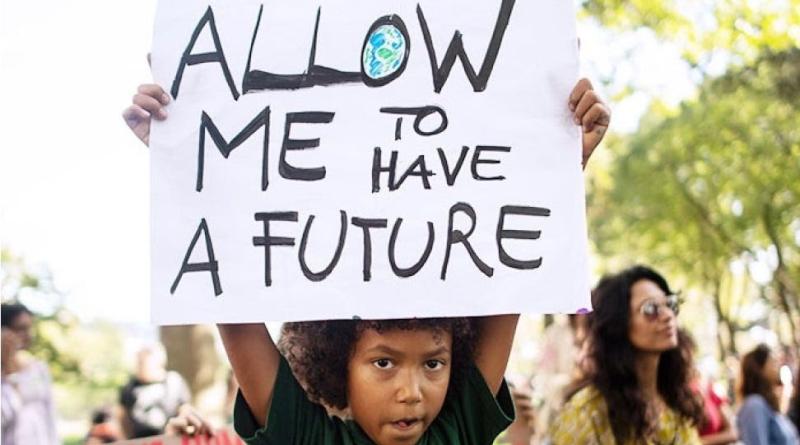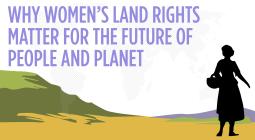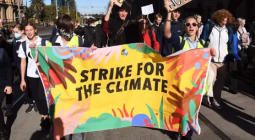Safeguarding Our Children's Future: A Moral Imperative

You want the best for your children. You want them to grow up happy and healthy in a world full of opportunity. But the future of our planet and our children are at risk. Climate change and environmental degradation threaten their health, their education, and their overall wellbeing. As parents, it's our responsibility to speak up and take action to create a better world for the generations to come.
A recent report from UNICEF serves as a urgent wake up call. It's the first ever "authoritative guidance" focused specifically on children's environmental rights. The findings highlight the reckless damage we've already inflicted through pollution, climate change, and unsustainable consumption. More importantly, the report issues a bold call to action for governments, businesses, and civil society to step up and protect children from further harm. As the report states:
"No country or community is doing enough to protect children from the intensifying impacts of pollution, environmental harm and climate change."
This isn't just another dense policy paper destined to collect dust on a shelf. It's a direct plea to put children at the center of all environmental policies and decisions. We can't afford to ignore these warnings any longer. The steps we take today will directly impact our children's future. Protecting their fundamental human rights to clean air, safe water, and a livable planet must be the top priority.
The Importance of Protecting Children's Environmental Rights
Children suffer the most from environmental degradation even though they contribute the least. Their developing bodies are far more vulnerable to toxins, pollution, and extreme weather compared to adults. This exposure during critical developmental stages can lead to lifelong health issues including:
- Respiratory disease from air pollution
- Neurological damage from lead and mercury
- Cancers from pesticides and other toxic chemicals
- Food and water insecurity from droughts and extreme weather
Climate change also threatens children's access to education. Extreme weather leads to school closures, damaged classrooms, and disrupted learning. Severe storms, wildfires, flooding put children at risk. Girls are especially impacted, with research showing they are more likely than boys to drop out after climate disasters.
Children in poverty fare the worst. They are often "trapped in a vicious cycle of deprivation" without access to nutrition, healthcare, or other resources needed to overcome environmental threats. The UNICEF report found that one billion children live in "extremely high-risk countries" when it comes to climate change and pollution.
As caretakers and decision makers, we have a moral obligation to break this cycle of deprivation. Safeguarding children's environmental rights is crucial for their survival and their future.
Key Takeaways from the UNICEF Report
The UNICEF report identifies key areas where national governments and the international community are failing children when it comes to environmental policies. Here are some of the top takeaways:
- Lack of Data: There is an alarming lack of quality data on environmental risks faced by children. More expansive monitoring and research is urgently needed.
- Failure to Act: No country is doing enough to tackle issues like climate change, environmental toxins, or air pollution which directly threaten children. Bolder action plans focused on children's rights are required.
- Excluding Children's Voices: Children's perspectives are often completely left out of policy decisions that impact them. Their views must be incorporated into relevant legislation and planning.
- Intergenerational Inequity: Current generations are exploiting resources at the expense of future generations. Policies should be based on stewardship and equity.
- Lack of Access to Justice: Children lack access to legal systems and recourse when their health or future is put at risk by environmental destruction. More accountability is needed.
This broad-based failure highlights how children's needs are often an afterthought when it comes to the environment. The UNICEF report calls this a "generational catastrophe" that demands immediate intervention.
Some key steps recommended include:
- Tightening national air quality standards in line with WHO guidelines.
- Phasing out lead paint and other sources of neurotoxic pollution.
- Increasing investment in climate adaptation and resilient infrastructure.
- Stopping deforestation and expanding biodiversity protection.
- Transitioning to renewable energy and sustainable agriculture models.
- Establishing binding limits on CO2 and methane emissions.
With decisive action and political will, we can create a thriving environment where children's rights are guaranteed. But it will require bold leadership and a renewed commitment to intergenerational equity. Our children deserve nothing less.
Bold Leadership Needed to Uphold Children's Rights
The UNICEF report is groundbreaking because it explicitly connects environmental sustainability to the full realization of child rights. But driving real change will require courageous leadership at all levels.
National governments bear the greatest responsibility. They must use their full legislative and regulatory powers to implement robust environmental protections. Policymakers should adopt a "child rights lens" to assess how all policies and spending decisions impact children.
Some key steps governments can take include:
- Establishing a Cabinet-Level Children's Environmental Rights Role: Having a dedicated voice at the highest levels of government would ensure children's needs are considered.
- Mandating Child Rights Impact Assessments: Require all new laws and policies to be analyzed for their impact on children and future generations.
- Expanding Children's Access to Justice: Enable children to seek legal remedies when environmental damage puts their rights at risk. Children's ombudsperson offices can facilitate this access.
- Incorporating Children's Perspectives: Create youth advisory councils to inform government decision-making processes.
- Banning Toxic Chemicals: Immediately prohibit chemicals known to harm child development and boost monitoring of consumer products.
- Tightening Air Quality Standards: Adopt World Health Organization guidelines on air pollution limits to protect vulnerable children.
Businesses also have an obligation to safeguard children from environmental harm. Some steps include:
- Responsible Sourcing: Ensure global supply chains do not rely on child labor or create hazardous conditions for families.
- Utilizing Child-Safe Materials: Proactively eliminate toxic materials, rather than waiting for bans. Prioritize child-friendly and sustainable ingredients and processes.
- Truth in Advertising: Do not market unhealthy or polluting products to children. Adhere to strict ethical guidelines around ads targeting youth.
Community leaders, civil society groups, indigenous tribes, and conscientious citizens can all advocate for children's environmental rights. We should:
- Use Our Voices: Write, call, or email political leaders urging them to take action based on UNICEF recommendations.
- Support Legal Efforts: Back court cases invoking children's right to a healthy environment. Litigation can spur policy change.
- Vote for Our Children: Elect lawmakers who make protecting children's environmental rights a top priority in their campaigns and policies.
- Join Movements: Add your voice to growing global efforts like School Strikes for Climate which amplify young people's perspectives.
- Go Local: Push for initiatives like green school buildings, bike lanes, and urban green spaces that directly improve children's health.
This is our chance to leave a living legacy for our children and grandchildren. But time is running out. The decisions we make in the next decade will determine what kind of world the next generation inherits. Will it be defined by sickness, scarcity, and environmental chaos? Or will it be a thriving world where every child enjoys their basic rights? The choice is ours. Future generations are counting on us to be bold.



